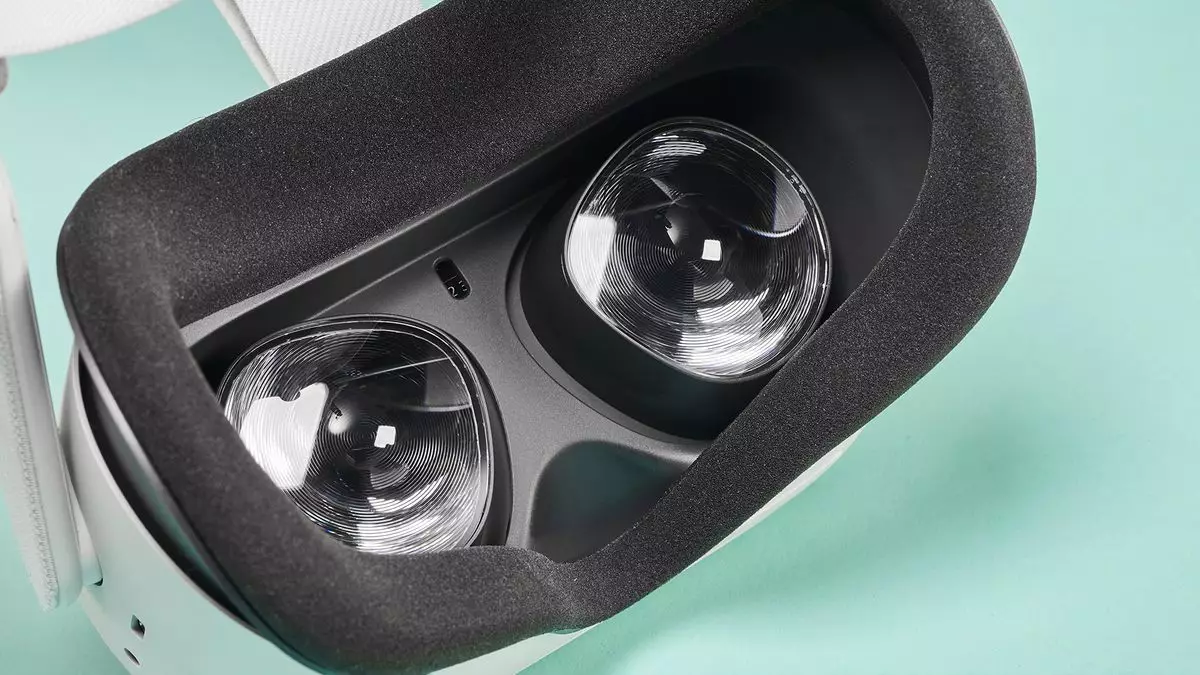Meta’s original plan for a high-end VR headset, the Quest Pro 2, seems to be in question according to recent reports. However, new information suggests that the company is shifting its focus towards a more affordable mixed-reality headset instead. Referred to as “Puffin,” this rumored device is said to be super-lightweight and much cheaper compared to the premium Quest Pro 2 headset.
The Puffin headset is described as resembling a bulky pair of spectacles, weighing less than 110 grams. Despite its lightweight design, it still offers pancake lenses and passthrough functionality with cameras. This is achieved by separating the battery and processing hardware into an external tethered “puck,” similar to Apple Vision Pro. Unlike traditional VR gadgets like the Meta Quest 3, which weighs 515 grams, the rumored Puffin device offers a significantly lighter alternative.
One of the standout features of the Puffin headset is its gesture-based control and input system, similar to Apple Vision Pro. This implies the presence of motion sensors on the headset, further highlighting its innovative design. The decision to opt for gesture controls over physical controllers could potentially revolutionize the way users interact with mixed reality content.
It’s important to note that Meta’s CEO, Mark Zuckerberg, previously criticized the cable and external power pack of the Apple Vision Pro device. He emphasized the superiority of Meta’s Quest device due to its wireless nature, claiming that wires hindered movement. The introduction of the Puffin headset, which relies on a tethered “puck” for processing, may challenge Zuckerberg’s stance on the importance of wireless technology in VR devices.
The rumored Puffin device is described as a mixed reality rather than a pure VR product. This strategic positioning allows Meta to potentially justify the use of a cable while staying consistent with its CEO’s previous statements. By differentiating between mixed reality and VR experiences, Meta could navigate the limitations of wired technology in a new light.
Despite reports indicating that the Puffin headset is not expected to launch until 2027, the concept of lighter and more ergonomic headsets is promising for the future of VR, AR, and MR. These advancements could potentially attract a broader audience and drive mainstream adoption of immersive technologies. However, true mainstream integration may not occur until VR technology can be seamlessly incorporated into everyday objects like glasses or even implanted devices.
Meta’s decision to explore more affordable and lightweight mixed-reality headsets like Puffin marks a significant shift in the VR landscape. By prioritizing innovation and user experience, Meta may be paving the way for the widespread adoption of immersive technologies in the years to come.

